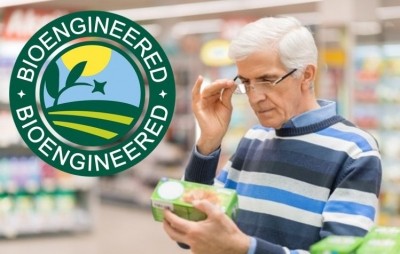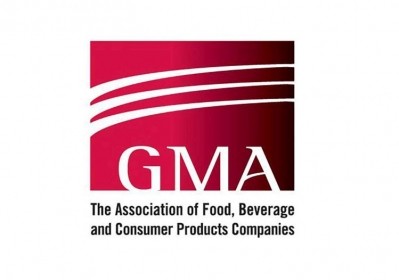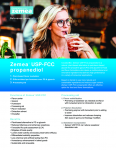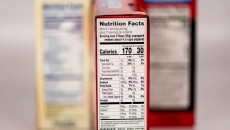Hershey, Unilever: GMO labeling should apply to highly refined oils, sweeteners
!["If the proposed rule defines ‘bioengineered’ so narrowly [for example excluding gene-edited foods], it will soon be obsolete and meaningless," argues the Alliance for Natural Health USA.”Picture: istockphoto-vchal](/var/wrbm_gb_food_pharma/storage/images/_aliases/wrbm_large/publications/food-beverage-nutrition/foodnavigator-usa.com/article/2018/06/30/hershey-unilever-strongly-urge-usda-to-include-highly-refined-ingredients-in-bioengineered-definition/8349820-1-eng-GB/Hershey-Unilever-strongly-urge-USDA-to-include-highly-refined-ingredients-in-bioengineered-definition.jpg)
In comments filed with the USDA on its proposed rule laying out a national bioengineered food standard, Unilever noted that many GM-corn-based sweeteners and GM-soy-based oils cannot be identified via analytical tests.
But these ingredients should still be labeled, it argued, given that the majority of US corn, soy, sugarbeet, canola, and cottonseed crops are bioengineered, and excluding highly refined ingredients derived from these crops from the USDA definition of ‘bioengineered’ would defeat the whole purpose of GMO labeling legislation.
“Consumer interest in bioengineered foods is based on a desire to understand how a crop is grown, not whether the ingredient contains detectable rDNA.”
Focusing on the presence of genetic material in foods - rather than food production systems - could also have unintended consequences, added Unilever: “A narrow focus on the presence of genetic material creates a differentiation based on rDNA that some could use to imply a safety issue with the rDNA. This narrow focus may lead to consumer belief that somehow foods and food ingredients containing genetic material are different.”
Hershey: If sugar beets are a BE crop, sugar derived from that crop should require disclosure
Echoing Unilever’s points in its comments, Hershey added that adopting a definition of ‘bioengineered food’ that excludes highly refined ingredients [HRIs] from crops that consumers know are genetically engineered would “be at odds with the law’s goal of providing consumers transparency and access to the information they demand.
“Put simply, and by way of example, if sugar beets are a BE crop, sugar derived from that crop is BE and should require disclosure. We believe only this level of transparency will satisfy consumers’ expectations for this standard and foster the trust its stakeholders are seeking to build.”
If the law doesn’t mandate disclosure of refined oils, sweeteners, some firms will voluntarily disclose them, confusing consumers
On a more practical level, Hershey added that if highly refined ingredients are not subject to mandatory disclosure, "We expect many processors/manufacturers to make the disclosure anyway, on a voluntary basis, to meet consumers’ expectations for transparency. This widespread voluntary disclosure will create a fractured and confusing environment for consumers…
“For example, the label for a muffin made with corn oil derived from bioengineered corn might bear a BE disclosure on a voluntary basis while another baked good, also made with BE-derived corn oil, might not. To the consumer… the products will look different, when in fact both contain BE-derived corn oil, making the disclosure inconsistent and potentially not trusted.”
Unilever: ‘We do not believe the acronym ‘BE’ on its own is recognized or understood by consumers’
As for disclosure (words, logos, digital codes), both manufacturers expressed strong reservations about the word ‘bioengineered,' with which most consumers are not familiar.
While it is a loaded term for many, GMO is the term consumers recognize, Hershey explained: “Rather than leveraging commonly known terms like ‘GMO’ or ‘genetic engineering’ - the terminology that already appears on many labels as a result of the now-preempted Vermont mandatory disclosure statute - the proposal mandates use of ‘bioengineering’ or ‘BE.’
“If AMS [USDA’s agricultural marketing service] maintains this terminology in the final rule, a robust consumer education campaign will be needed to help consumers understand what ‘BE’ signifies and how it relates to other more prevalent terms already in use, including ‘genetic engineering’ and ‘GMO.’”
Unilever, meanwhile, suggested the terms: ‘Genetically engineered food’ or ‘Contains a genetically engineered food ingredient,’ adding: “We do not believe the acronym ‘BE’ on its own is recognized or understood by consumers today.”
Geneticist: Wording of 'bioengineered' definition is problematic
Dr Alan McHughen, a geneticist at the University of California, Riverside, said that the wording of the 'bionengineered' definition would need updating if refined ingredients are included, given that it uses the word "contains" modified DNA.
"USDA-AMS mandating a label on a food lacking DNA entirely (such as most oils, sugars, etc. derived from BE plants) contradicts current FDA labeling policy, which starts that the label must be, among other things, truthful. If the USDA-AMS label states or implies that a given package of sugar contains modified DNA, that is a false claim."
The timetable for federal GMO labeling
USDA was originally charged with publishing its final rule on GMO labeling by July 29, 2018, a deadline it will be unable to meet. It has not given a specific date for publication, but agriculture secretary Sonny Perdue recently said he hoped a final rule would be published “later this year.”
- To see all the comments submitted on USDA’s proposed rule (the comment period ends July 3), click HERE.
- To read the proposed rule, click HERE.
We’ve highlighted a selection of other comments from other stakeholders below:
American Bakers Association: "ABA strongly believes that AMS should not exclude any refined ingredients from the disclosure standard. ABA is aware that a consumer’s desire for the disclosure may not be based solely on whether the food contains BE content, but also on whether BE crops were used to make the ingredients and for other reasons.
"Ingredients that are produced through fermentation should not be subject to disclosure... These ingredients are not themselves BE or a derivative of a BE crop. Rather, these ingredients may be “grown” (e.g., “fed”) substances that are, or are derived from, products of BE, such as enzymes, amino acids, citric acid, vinegar, and vitamins."
National Association of Manufacturers: “We suggest that USDA explicitly allow companies to voluntarily continue to use terminology like ‘genetically modified,’ ‘GM,’ or other appropriate terms to maintain continuity with their existing methods of disclosure.”
Prof Alan McHughen, University of California, Riverside: "Contrary to popular belief, conventional breeding is not limited to ‘crossing one plant with another of the same species’. Instead, conventional breeding can involve inter-species crossing, as well as highly genomic-disruptive processes as ionizing radiation mutation breeding, and even overcoming natural barriers to hybridization using embryo rescue. Each of these is far more manipulative of plant genomes than simple rDNA, yet there is no call to regulate or even label such products."
Canadian Health Food Association: “A QR code should not be the sole indicator of GM ingredients on a food label…. Proposed labels under the governance of the USDA should not contain any positive or negative undertones, and should be void of any industry influence.”
Alliance for Natural Health USA: “A crucial issue is the government's definition of what a ‘bioengineered food’ is. The proposed definition is entirely inadequate to capture all the different techniques for genetically modifying food that are currently being used or are in development. Gene-editing using CRISPR is one example, where certain enzymes are used like scissors to cut and insert new DNA sequences.
“This technology is not covered under the proposed labeling rule. This is unacceptable. We are in the Wild West of genetic manipulation, hacking, and experimentation, and we need laws that can keep up with these advances. If the proposed rule defines ‘bioengineered’ so narrowly, it will soon be obsolete and meaningless.”
Institute for Agriculture and Trade Policy: “The definition of bioengineered should be consistent with the Codex Alimentarius Commission definition of modern biotechnology, which clearly subsumes the new techniques, such as TALENS and CRISPR- CAS9.8 The proposed rule is also inconsistent with international norms and will promote trade disputes . Other countries do not limit disclosure to whole foods and neglect to inform consumers of GE ingredients such as corn syrup, corn starch and oils.
Carolina Farm Stewardship Association: “The rule makes clear that a manufacturer may not claim that a product is not bioengineered simply because it is not subject to the disclosure requirement. Yet the proposed rule is silent on this point. We urge AMS to reinforce this requirement in the final rule because of the potential for abuse in the marketplace.”
Moms across America: “The only other alternative that is acceptable is a WARNING Label. WARNING: This product contains genetically engineered ingredients, which may include chemicals that have been shown to cause harm to health.”
Read some comments HERE from consumers.


















